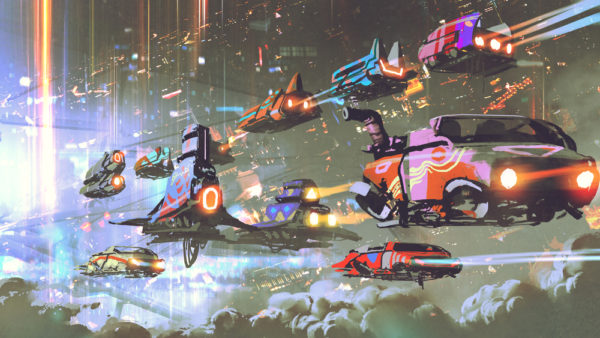
We all grow up in a world we think we know. Not just that, but we assume it’s always been like this. That’s natural – we have no other personal frame of reference, other than old TV shows and movies (and of course books) that offer us a two-dimensional look at life the way it used to be.
But times change, and with them, almost everything we take for granted does too.
When I was in high school, back in the early-to-mid eighties, World War II was in the way far distant past. So far back that films were in black and white, there were no national TV shows or stations, and the only computer was that thing Alan Turing invented to crack the Nazi encryption codes. It was a different era, so far removed from the life I was living in 1982 as to seem to be from a different planet altogether.
This year, we are as far past my freshman year in high school as I was then from the year the Japanese attacked Pearl Harbor.
I have to sit with that for a moment. How is that possible? It’s still so vivid and real in my mind – the bright neon colors, the Rubik’s cubes, the never-changing helmet of hair on Ronald Reagan’s head. Oh and the Atari 2600… my first real video game console.
For kids who are just starting high school in 2022, my own teenage world is probably as alien and disconnected to them as the wartime world of the forties was to me.
Which brings me to today.
We live in a world of wonders. Things that were only glimmers of technological possibility when I was a kid – powerful computers so small they fit in our pockets, cars that can drive themselves, heck, even jet packs (although those have never really penciled out in terms of fuel efficiency) – all exist in the world of 2022.
And yet, it doesn’t feel like the future I was promised. And not just because I’m nearing my mid-fifties and we still don’t have flying cars. Dammit.
There’s a big gap between the lofty promises of future tech (remember how the internet was going to revolutionize the democratic spread of real information and bring us all together?) and actual tech as designed by today’s greedy, cost-driven global corporations.
Take the self-driving car, for instance.
I remember the thrill I felt run up my spine the first time I read a story where someone hailed a cab, and an automated vehicle arrived to pick them up to carry them off to their destination, Imagine the freedom! You could tap the implant in your temple and with your super duper tri-dee goggles, carry on a conversation with a friend half a continent away, compose a new song with the help of your friendly AI personal assistant, or just sink back into your seat and enjoy some replicated popcorn and the latest tri-dee blockbuster featuring Arnold’s grandson, Fletcher Schwarzenegger. All while being whisked securely to wherever you wanted to go.
The reality is far more nuanced.
Road conditions vary widely across the country and the world, and are very difficult to program for. In some places there’s a clear curb de-marking the edge of the road. In others there’s a crumbling mini wall of asphalt.
Weather conditions, including snow and fog, can impair the ability to accurately sense road conditions, whether you’re a jumbled bit of messy programing or a self-driving car. And left turns across oncoming traffic have proven to be a surprisingly difficult challenge for the automated vehicle’s processor.
And that’s all before we consider what might be going on behind the scenes, as companies try to make these cars as cheaply as possible, maximize profits, and sponsor legislation to get them on the road faster, sometimes before they are ready.
This is not my sci-fi dream of a self-driving car.
Or take social media, as I mentioned above.
Somewhere in the last ten years, it stopped being primarily a place to hang out and share photos of your pets and your great meal out and morphed into a haven and meeting place for online extremists, where the algorithms designed to keep our eyes glued to our screens had the (probably) unintended side effect of making misinformation go viral and radicalizing folks who used to be willing to sit down over a meal and discuss the day, politics and life in general.
The future is already here, and yeah, in many cases it sucks.
So where does that leave us?
Every generation enjoys the fruits of progress, and confronts its challenges. We’ve been here before, in many different incarnations – the industrial revolution. The computer revolution. The internet revolution. And the time that Zog discovered fire.
So I am not without hope. Maybe rides in self-driving cars will, in a generation, be ubiquitous, affordable, and far safer than the tangle of human driving interaction we have today. The generation who first grows up with them will probably give them no more thought than I gave to a world filled with gas-powered, human-driven vehicles where annual deaths in the US alone exceed 46,000 people. Maybe self-driving cars will do it better.
And perhaps we’ll finally get social media right, and rein in some of its worst excesses. It took decades – a century maybe? – to develop our old media ecosystem and journalistic ethics that helped stabilize the media’s influence on society before it was all upended by the internet.
But for now, I have a plan to deal with my “the future is now” angst. I’m going to crack open a good sci-fi novel about flying cars, and hope they don’t invent those (and screw them up) too soon.
What things that used to be in the realm of science fiction exist in the world today and haunt your dreams?
